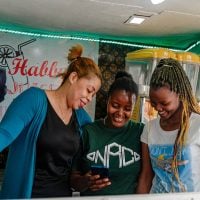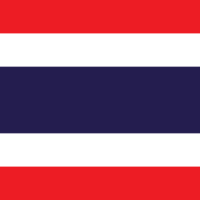Deadline: 30-Jun-23
The U.S. Department of State, Bureau of Democracy, Human Rights, and Labor (DRL) announces an open competition for organizations interested in submitting applications for projects that support regional investigative journalism in Europe, Eurasia, and Central Asia.
DRL’s goal is to strengthen investigative journalism networks in Europe, Eurasia, and Central Asia engaged in cross-border, collaborative reporting and support them to become trusted sources of information. The primary objective of this project is to increase the reporting and networking capacity of investigative journalists and outlets across Europe, Eurasia, and Central Asia by helping them analyze patterns of corruption, influence and investment, conflicts of interest, anticompetitive business practices, and the impact of such practices on democracy, the environment, and economic growth.
Activities could include providing technical capacity-building assistance and small grants, improving transnational collaboration among journalists, and strengthening holistic digital and physical security practices. Specific activities should be included and designed to help beneficiaries operate effectively in particularly challenging environments in the region where corruption and malign influence typically originate. Intended outcomes include: Journalists and media outlets effectively provide independent, investigative reporting to large audiences; and increased quality and quantity of investigative reporting in Europe, Eurasia, and Central Asia prompt actions to promote accountability for crime and corruption.
Given the rapidly evolving situation in the region, proposals must realistically address challenges and limitations that the applicant would likely face while implementing this program. With this context in mind, applicants are requested to submit a security plan to demonstrate situational awareness and preparedness. Security plans must address safety protocols for core activities including journalistic reporting and include both physical and digital security considerations. Resources should be allocated in the budget to support these needs, including emergency funds. Applicants are also required to include contingency plans for proposed activities.
Where appropriate, competitive proposals may include:
- Opportunities for beneficiaries to apply their new knowledge and skills in practical efforts;
- Solicitation of feedback and suggestions from beneficiaries when developing activities in order to strengthen the sustainability of programs and participant ownership of project outcomes;
- Input from participants on sustainability plans and systematic review of the plans throughout the life of the project, with adjustments made as necessary;
- Inclusion of vulnerable populations;
- Joint identification and definition of key concepts with relevant stakeholders and stakeholder input into project activities;
- Systematic follow up with beneficiaries at specific intervals after the completion of activities to track how beneficiaries are retaining new knowledge as well as applying their new skills.
Funding Information
- Total Funding Floor: $1,500,000
- Total Funding Ceiling: $1,500,000
- Anticipated Number of Awards: 1
- Type of Award: Grant
- Period of Performance: 24 months
- Anticipated Time to Award, Pending Availability of Funds: 8 months
Ineligible Activities
Activities that are not typically allowed include, but are not limited to:
- The provision of humanitarian assistance;
- English language instruction;
- Development of high-tech computer or communications software and/or hardware;
- Purely academic exchanges or fellowships;
- External exchanges or fellowships lasting longer than six months;
- Off-shore activities that are not clearly linked to in-country initiatives and impact or are not necessary per security concerns;
- Theoretical explorations of human rights or democracy issues, including projects aimed primarily at research and evaluation that do not incorporate training or capacity-building for local civil society;
- Micro-loans or similar small business development initiatives;
- Initiatives directed towards a diaspora community rather than current residents of targeted countries.
Eligibility Criteria
- DRL welcomes applications from U.S.-based and foreign-based non-profit organizations/nongovernmental organizations (NGO) and public international organizations; private, public, or state institutions of higher education; and for-profit organizations or businesses. DRL’s preference is to work with non-profit entities; however, there may be some occasions when a for-profit entity is best suited.
- Applications submitted by for-profit entities may be subject to additional review following the panel selection process. Additionally, the Department of State prohibits profit to for-profit or commercial organizations under its assistance awards. Profit is defined as any amount in excess of allowable direct and indirect costs.
For more information, visit Bureau of Democracy, Human Rights, and Labor (DRL).









































